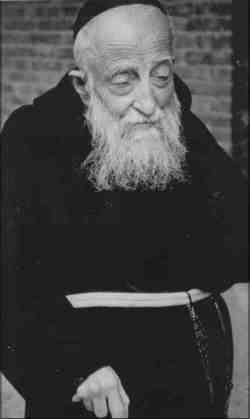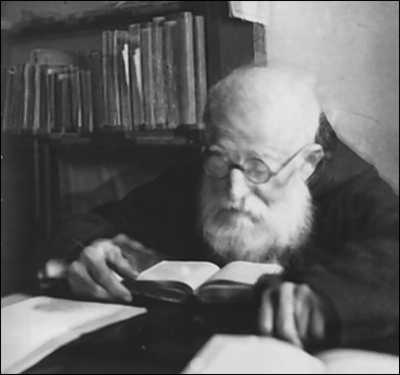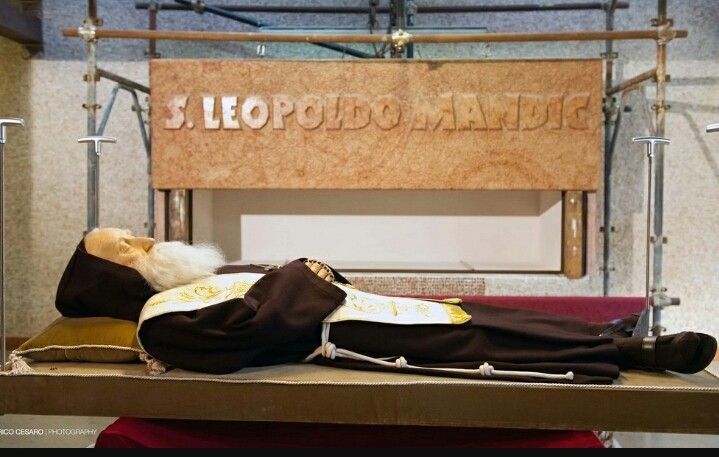I never heard of Saint Leopold Mandic until tonight.
Leopold was born into a Croatian Catholic family in Castelnuovo di Cattaro (present day Herceg-Novi in Montenegro) on 12th May 1866, the last but one of 16 children of Petar Mandić & Dragica Zarević. At his baptism he was given names Bogdan Ivan (Deodatus John).
His paternal great-grandfather, Nicholas Mandić, was originally from Poljica, in archdiocese of Spalato (Split), to where his ancestors had come from Bosnia, back in 15th century.
At Castelnuovo di Cattaro, at that time in Province of Dalmatia, part of Austrian empire, the Capuchin Franciscan friars of the Province of Venice had been active since 1688 when area was under rule of Republic of Venice.
His religious vocation
From 1885 to 1890 he studied philosophy & theology in friaries of Padua (Santa Croce) & Venice (Santissimo Redentore). In those years the religious formation he had received from his parents took definitive shape from his study & knowledge of Holy Scripture & Patristics, & through his development of a Franciscan theology. On 20th September 1890, in the basilica of the Madonna della Salute in Venice, he was ordained priest by Cardinal Domenico Agostini.
His missionary & ecumenical aspiration
He asked to be sent to eastern mission in his homeland, in pursuit of that ecumenical ideal, to which he vowed himself & which aim he followed to the end of his life, but his superiors didn't grant his request. Indeed, due to his frail physical condition & a speech impediment, he was unable to devote himself to preaching.
His first years thus passed in silent seclusion in the friary in Venice, where he heard confessions & carried out humble tasks in the friary, as well as carrying out door-to-door collections.
In September 1897, he was given the task of running the little friary of Zara in Dalmatia, but his hope of realising at last his missionary aspirations didn't last; he was recalled in August 1900 to Bassano del Grappa (Vicenza) as a confessor.
He had a brief period of missionary activity in 1905 as vicar of the friary of Capodistria, in nearby Istria, where he proved to be a much appreciated & sought-after spritual counselor. But once more after only a year, he was recalled to the Veneto, to the sanctuary of the Madonna dell’Olmo at Thiene (Vicenza). From 1906 to 1909 he served there as a confessor, with exception of a brief stay in Padua.
His arrival in Padua
These were years of intense study & dedication. Fr. Leopold, who taught Patrology, differed from other lecturers in his kindness, which some considered eccessive & not in keeping with traditions of the Order. It was probably for this reason that in 1914 Fr. Leopold was suddenly withdrawn from teaching. This was a new cause of suffering for him.
Thus it was that from autumn 1914, when he was 48 years old, Fr. Leopold was asked to devote himself exclusively to hearing confessions. His gifts as a spiritual counselor had been well-known for some time, so much so that within a few years he became sought-after as a confessor by people from all walks of life, who came from beyond the city to see him.
Leopold is sent to the South
As for other “foreigners” resident in the Veneto, he was subject to police investigation & because of his express wish not to renounce his Austrian citizenship, he was sent beyond Florence to margins of the south of Italy. In Rome on his journey southwards he also met Pope Benedict XV
He reached the Capuchin friary of Tora (Caserta) at end of September 1917, where he was to pass a period of political exile. The following year he was sent to the friary at Nola (Naples) & then to Arienzo (Caserta).
At end of World War 1 he returned to Padua. On his journey he visited sanctuaries of Montevergine, Pompei, Santa Rosa at Viterbo, Assisi, Camaldoli, Loreto & Santa Caterina at Bologna.
He settles finally in Padua
“In confession he demonstrated an extraordinary attraction to highest levels of culture, a fine intuition & particularly a sense for sanctity of life. Not only did working people flock to him but also intellectuals & aristocrats, lecturers & students from the university, secular clergy & members of religious orders.”
In October 1923 his superiors transferred him to Fiume (Rijeka), after friary there had passed to control of the Venetian Province. But only a week after his departure, bishop of Padua, Mgr. Elia Dalla Costa, responding to desire of laity, asked Provincial Minister of Capuchins, Fr. Odorico Rosin da Pordenone, to bring him back. Thus it was that by Christmas of that year Fr. Leopold, in obedience to his superiors & abandoning his dream of working in field for Christian unity, found himself once more in Padua.
He stayed in Padua for rest of his life. Here he passed every moment of his priestly ministry in administering sacrament of confession & in spiritual direction.
On Sunday 22nd September 1940, he celebrated his golden jubilee, that is to say 50th anniversary of his priestly ordination, in church of the Friary of Santa Croce. Widespread, spontaneous, universal & large demonstrations of sympathy & regard for Fr. Leopold demonstrated how profound & significant his work of had been in 50 years of ministry.
His health got progressively worse in last months of 1940. He was taken into hospital at beginning of April 1942; he hadn't realized that he had a tumor of the esophagus. He returned to his friary & continued to hear confessions, even though his condition continued to get worse. As was his usual habit, he passed 29th July 1942 hearing confessions without pause, then passed the greater part of night in prayer.
At dawn on 30th July, as he was preparing to celebrate Mass, he fainted. He was carried back to bed where he received Sacrament of the Sick. A few minutes later, as he spoke final words of the prayer, Hail Holy Queen, he raised his hands & breathed his last. The news of death of Fr. Leopold spread quickly through Padua.
For 2 days a long queue of people came to pay their respects to body of the confessor at Friary of the Capuchins. His funeral took place on 1st August 1942, not in Capuchin church but in the much more spacious Santa Maria dei Servi. He was buried in main cemetery in Padua, but in 1963 his body was translated to a chapel of the Capuchin church in Padua.


Saint Leopold Mandic (1866 - 1942)





I was going through some old pictures of my great-aunt and came across a little plastic card from when he was a Servant of God. It has his picture on one side and a tiny dot of a relic of his garment on the other. I had never heard of him. Thank you for this information.
ReplyDelete